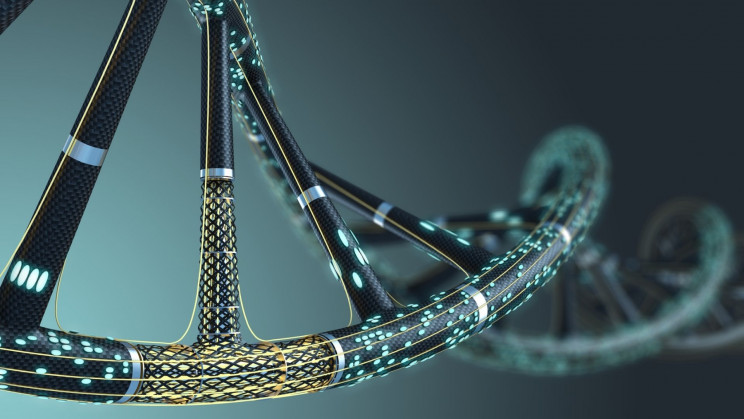Microsoft has discovered a means to read and write data in DNA format more quickly, putting us closer to commercially viable DNA storage.
To date, the speed with which DNA could be synthesized has severely limited its utility as a data storage medium. However, Bichlien Nguyen and Karin Strauss of Microsoft Research describe a new approach for writing synthetic DNA with a chip that is 1000x quicker than before, allowing for substantially faster writing speed and thereby lowering the cost of generating the content in the first place.

The researchers collaborated with the University of Washington’s Molecular Information Laboratory (MISL). The study, Scaling DNA Storage with Nanoscale Electrode Wells, was published in Science Advances.
“It is early days for this research, and while we’re encouraged by our early findings, we have nothing additional to share about plans [for commercialization]. However, to add more to the research itself, the DNA synthesis chip was a proof of concept that showed the electrode layout design could be used to generate massively parallel unique DNA sequences for data storage, ” a Microsoft spokesperson said in a statement.

“A natural next step is to embed digital logic in the chip to allow individual control of millions of electrode spots to write kilobytes per second of data in DNA, and we foresee the technology reaching arrays containing billions of electrodes capable of storing megabytes per second of data in DNA. This will bring DNA data storage performance and cost significantly closer to tape.”
As one of the world’s leading cloud computing companies, Microsoft is keen on creating this technology, making cloud backup and storage more durable as we move closer to the zettabyte era.
Still, don’t expect it any time soon because there are still specific technological challenges to overcome. However, other diverse organisations worldwide are working to make data storage a success. Microsoft is not putting all its bets on one side; Project Silica is a gamble on holographic data storage.


